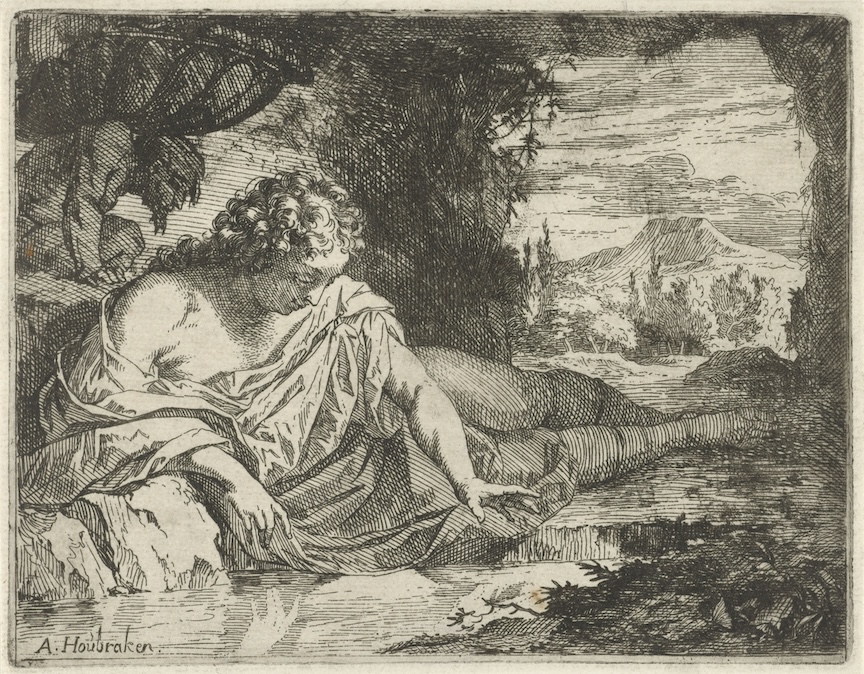“It is better to give than to receive,” says the Lord, as Saint Paul reports to us. And when you give, says the Lord, you are not to let your left hand know what your right hand is doing. I should like to place these two verses together, to shed light on what is so dreadfully wrong with our therapeutic and narcissistic culture, especially as it is implanted and propagated in schools, among children and young people, much to the stunting of their personalities and the glooming of their souls.
Central to the therapeutic culture is a half-truth. If you say, “There is something wrong with me,” you are right, there is. It is sin, or the propensity to sin. There may be more; you may be mentally or physically ill, and if so, you need treatment, no question. I have personal experience of that.
But even if our minds were as clear as the blue sky and our bodies were as stout as oaks, there would still be sin. And unless we are talking about Christ, the “true Aesculapius” or the God of healing, or, to see it from the human perspective, unless we are talking about prayer and spiritual direction and the acceptance of divine grace, there is no cure for sin.
As far as the propensity is concerned, it is a wrongness and a poverty that you will always have with you, on this side of the grave and your final purification.
Sin tarnishes the image of God within us. Serious sin, if we persist, makes us like hunchbacks and cripples. Yet the more fully we give ourselves to it, the less likely we are to notice the deformation. We become like Narcissus, gazing into the pool and falling hopelessly in love with his own reflection. With this distinction: Narcissus was beautiful, and we are not.
We say, “How good it is to be just the way we are! It is good to be a cripple, good to have a bent torso and brittle bones.” Or we gaze, in a macabre way, on our sores, picking at them, absorbed in them, turning the pain into a perverse pleasure.
Yet to be healed, we must break free. The Pharisees, as Jesus suggests, turned their giving into a stage for self-display, and thus was their superficial generosity warped and made into a ravenous taking, rousing in those who beheld them not gratitude but envy. It was not better for them to give than to receive, because they wanted the left hand of everybody to see what their right hand was doing.
The widow who gave her small coin to the temple treasury could do so by forgetting herself. She gave from her very life, says Jesus. Nor was there any great display, for what she gave, in the world’s eye, was so little. And by her giving, she became, in reality, greater than all the other donors. She increased by decrease; she multiplied by self-surrender.

There is the key to such happiness as is available to us in this world. If you grit your teeth and determine to be happy, you will never be. If you poke at your sores, they will never heal. If you say, “Because I’m sick, others must tend to me,” you will never be well.
But if you lose yourself for the sake of Christ, you gain in the very losing, as he who gives in the pure spirit of giving becomes like the Creator who made all things, not because he needed them, but in an act of pure overflowing grace. Charity conquers all.
“But at least a teacher who presses children to talk about the things they are suffering is giving of herself,” you may say. Maybe yes, maybe no, if I must judge by intentions; but the results are generally poor, regardless of intentions. Sometimes the intentions are bad. Some people seek attention by preying upon the weakness of others, setting themselves up as their healers, winning an unhealthy allegiance at the cost of worsening the disease.
But unless we have an urgent case that requires, say, the intervention of the police, the best thing for a well-intended teacher to do is to turn the child’s eyes toward other people and other things, and to forget himself. This she can do by giving him the sense that he is needed; by providing him with an opportunity to give to others.
Such “therapy” can be like not letting your left hand know what your right hand is doing: quiet, unassuming, tactful.
Then we come to the heart of what it is to be a school. Josef Pieper reminds us that the meaning of schola is not work, but leisure, and that leisure is for celebration, for gratitude, for the liberty of saying to all things in the world, “How good it is that you exist!” It is a recess from the daily grind.
Therefore, it is contrary to the essence of school to import into it all the obsessions and miseries of the world roundabout. You cannot really be free to think about the common good when everyone is shouting at each other, you cannot read a love poem if you are huddled in a shell of self-regard, feeling your sores, and you cannot face the world in a spirit of giving unless you cease to face yourself.
It will not do to say that you must be cured first, since this giving, this liberation of the self from the self, enabling it to grow in stature and wisdom before God and man, is the very cure you need.
I believe we know this. Charity is not a vampire. “Come,” you say to a couple of children, making sure that the troubled one is among them, “I need your strong arms to help me move the bleachers.” There, the opportunity to grow by giving; to remember the shoulder and forget the sore; to be with others in a job well done.















